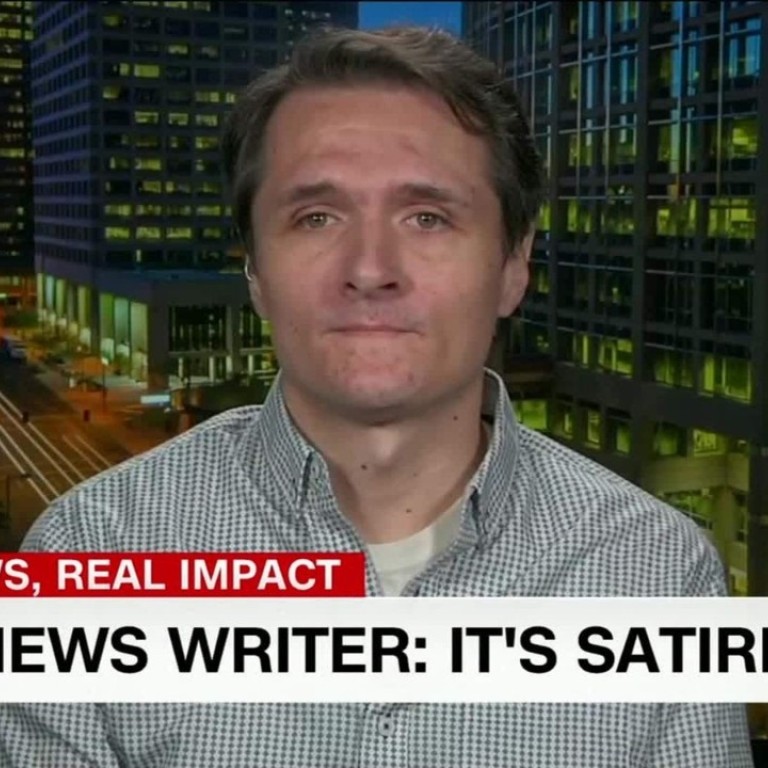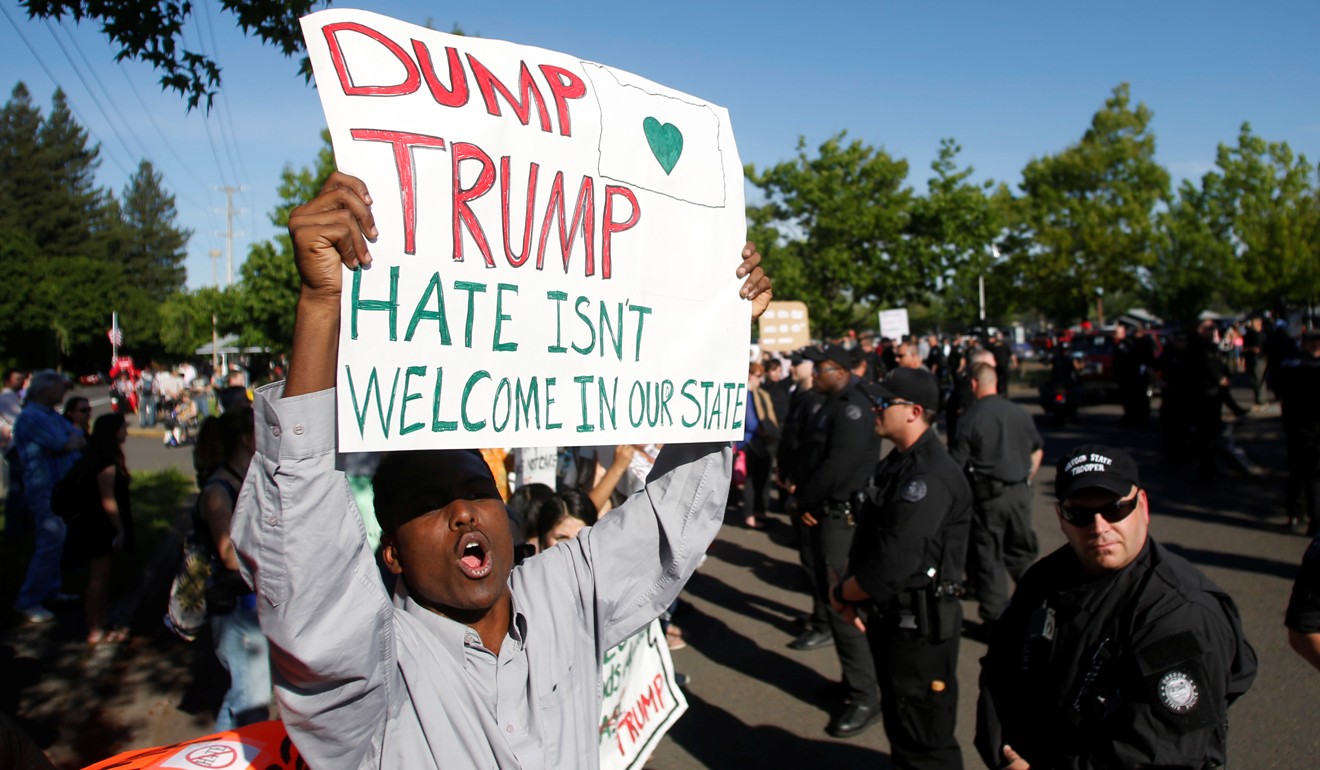
Notorious fake news writer who claimed credit for Trump’s victory is found dead at 38
Paul Horner: ‘I thought they’d fact-check it, and it’d make them look worse ... But Trump supporters – they just keep running with it’
Paul Horner may have fooled you into thinking he was someone else. He pretended to be the real person behind Banksy – twice. He pretended to win a massive Powerball jackpot. And he pretended to be a teenager who was sent to prison on domestic terrorism charges for “swatting” a video game opponent.
Horner was one of the oldest and best-known creators of fake news on the internet, who found infamy for influencing the 2016 US presidential election, with made-up stories about anti-Trump protesters being paid and Barack Obama being gay and Muslim.

So when Horner’s brother announced in a Facebook post last week that the writer had suddenly died, many seemed to suspect that his death might be just another one of Horner’s hoaxes. An article in the Phoenix New Times covering the family announcement of the Phoenix-area writer’s death even carried a disclaimer over the weekend noting that the paper had been unable to confirm Horner’s death with anyone except for his family – the medical examiner’s office wouldn’t be open until Monday, they explained.
Interviews with Mr Horner’s family indicate the deceased was known to use and abuse prescription drugs
For days after Horner’s death was announced, most national news outlets that had written about his work weren’t touching the story.
But it was not a hoax. On Tuesday, the Maricopa County Sheriff’s Office confirmed that Horner, 38, had died on September 18, at an address his relatives identified as his mother’s home in the Phoenix area. In an email to the 10 or so media outlets that reached out to them to confirm that Horner really had died, officials said that they suspected no foul play. He was found dead, in a bed, in a home. The investigation was still open, pending toxicology reports.
“Interviews with Mr Horner’s family indicate the deceased was known to use and abuse prescription drugs,” the statement read. “Evidence at the scene suggested this could be an accidental overdose.”
As soon as the police provided their official confirmation Horner’s death, a cascade of national news outlets picked up the story.
The words to describe what Horner did depended on whom you asked. Horner himself said his work was satire, and often tried to contextualise what he did with the idea that he believed he could use his powers for good. When interviewed by the media about his role in helping to spread fake news before the US elections, he’d plug the charity he founded to hand out clean socks to Phoenix’s homeless.
And some of his most notorious election-era articles now carry moralising disclaimers at the top.
I think that was a lot of the genius behind a lot of his work was pushing ideas that either people wanted to believe or thought was possible
One particularly viral article of his, “Donald Trump Protester Speaks Out: ‘I Was Paid $3,500 To Protest Trump’s Rally’,” was tweeted by Trump’s former campaign manager Corey Lewandowski. Horner added the following note to the top of the body of the article:
“This story is not real. No one needs money to protest Donald Trump. I personally went to two Donald Trump rallies and I can say with 100% certainty that NONE of the protesters were getting paid. This story I wrote is mocking all of you sheep who think protesters are getting paid. Do your own thinking, retards.”
But for many, Horner became the human face of the rising tide of fake news that many Clinton supporters blamed for aiding Trump’s surprise November win. In a post-election interview with The Washington Post last year, Horner said the outcome wasn’t a shock to him. He’d been writing fake news for years, he said. But something had changed in the months before the election.
“I thought they’d fact-check it, and it’d make them look worse. I mean that’s how this always works: Someone posts something I write, then they find out it’s false, then they look like idiots. But Trump supporters – they just keep running with it!” Horner said.
At another point in the interview, he said, “I think Donald Trump is in the White House because of me.”
J.J. Horner said his brother Paul considered his work satire and explained that his brother’s unique eye for hoaxes and hypocrisy at a young age later worked as clickbait in the internet world.
“So I think that was a lot of the genius behind a lot of his work was pushing ideas that either people wanted to believe or thought was possible,” J.J. said.

